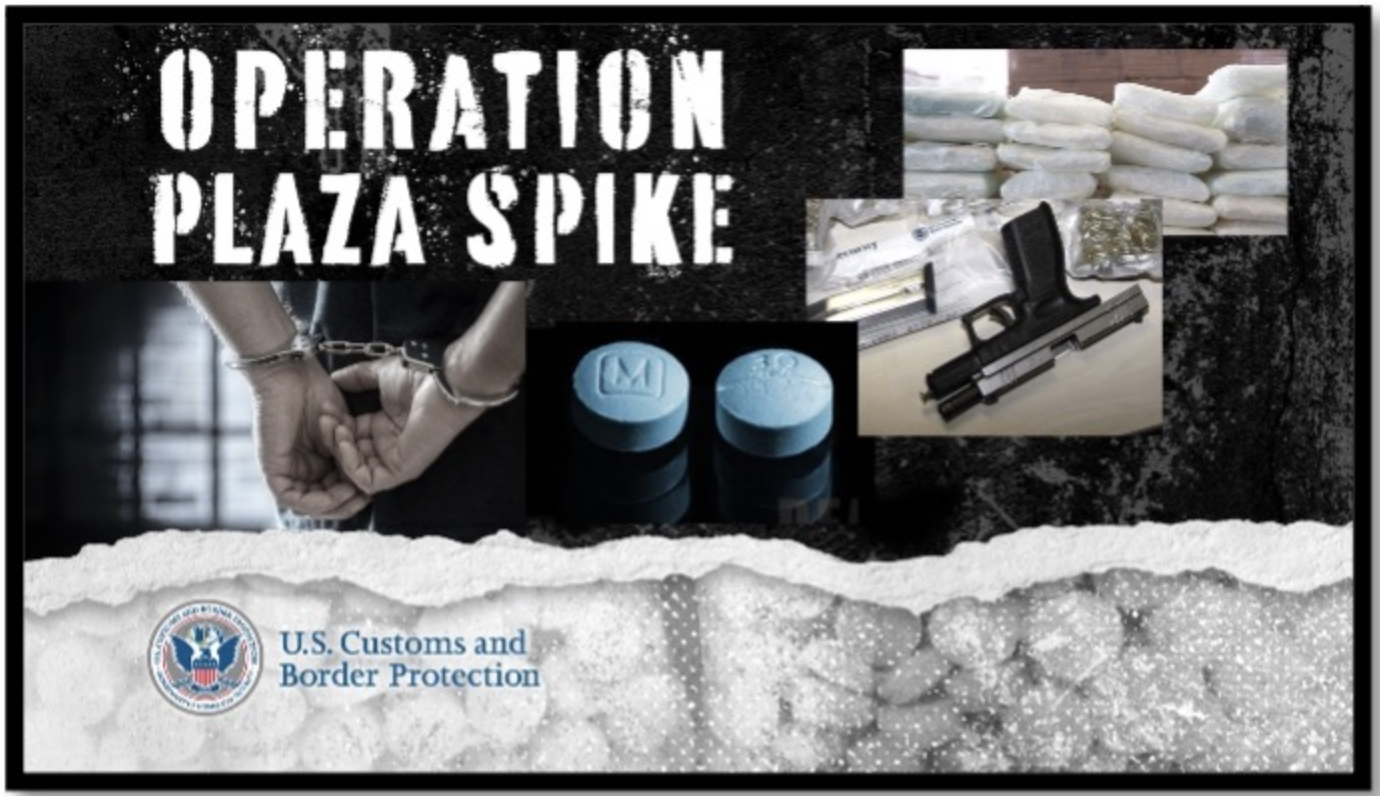Customs and Border Protection (CBP) has begun the latest iteration of its synthetic drug supply chain crackdown, this time by disrupting “natural logistical chokepoints” at the United States’ southern border. Operation Plaza Spike will target Mexican plazas, or territories identified as critical to fentanyl distribution by transnational drug trafficking organizations (TCO). CBP announced the operation April 10 at a press conference in Nogales, Arizona, which sits across the border from the first plaza the agency plans to target.
Nogales, Mexico, is the site of almost half of CBP’s fentanyl seizures. Though led by CBP, Operation Plaza Spike is a collaborative effort with multiple other agencies including Drug Enforcement Administration, which has created three “counter-threat teams”—one for the Sinaloa cartel, one for the Jalisco cartel and one for “global illicit finance networks” associated with both.
“We are entering the next phase in our fight against fentanyl,” Troy A. Miller, CBP Senior Official Performing the Duties of the Commissioner, stated at a press conference. “We are going after the plaza bosses, whose organizations are responsible for virtually everything that is smuggled into the US via the Southwest border.”
The focus is surveillance and seizures of fentanyl, fentanyl precursors, pill presses, weapons and of course cash.
At no point in recorded history has cracking down on illicit drugs resulted in illicit drugs being less available, or made the public more healthy. But half a century into the War on Drugs and a full century after prohibition, the federal government continues to maintain that if we fund harsher and harsher enforcement, we can get all the drugs off the streets and nothing will replace them. Same thing we can do with people.
Asked by John Washington of Arizona Luminaria if CBP was concerned that if it removes high-ranking TCO leaders, others within the organizations will simply take their place and violence will potentially increase, Miller said the operation is about more than that.
“It’s about the access to the US. It’s about the precursors,” he said. “It’s about the pill presses. It’s about the supply chain.”
While the launch of Operation Plaza Spike is notable, the operation itself isn’t particularly new. It follows predecessor operations Blue Lotus, Four Horsemen, Rolling Wave and Artemis, as well as the ongoing Operation Apollo, which CBP announced will expand from Southern California into Arizona.
Operation Plaza Spike is part of CBP’s Strategy to Combat Fentanyl and Other Synthetic Drugs, a “strategy refresh” announced in October 2023, and falls under the Biden administration’s “whole-of-government” crackdown on synthetic drug supply chains. The focus of all this is mainly surveillance and seizures of fentanyl, fentanyl precursors, pill presses, weapons and of course cash.
Though CBP, along with the DEA and other partners, is mostly targeting fentanyl production, it’s also targeting the broader category of synthetic drugs, especially methamphetamine. The focus on fentanyl precursors has also fueled the federal government’s fixation with stamping out the fentanyl analogs that have been emerging in the aftermath of crackdowns on fentanyl itself. Somewhat irritatingly, in Operation Plaza Spike CBP continues to list heroin as one of the synthetic drugs becoming increasing prevalent in the US, an error copied over from its fentanyl strategy launch materials in 2023.





Show Comments